Al Aqsa, which means the “farthest” or “the supreme” in Arabic, is a mosque that lies in the heart of the old city of Jerusalem. Muslims from all sects hold it in high esteem after two main holy sites – Mecca and Medina.
The Al Aqsa is mentioned several times in the Quran. For instance, verse 17:1 in the chapter Al Isra reads:“Glory be to Him who carried His servant by night from Al Masjid Al Haram to Al Masjid Al Aqsa; the environs of which We have blessed, that We might show him some of Our signs. Indeed He is the Hearing, the Seeing.”
The verse is in relation to Prophet Muhammad’s night journey from Medina to Masjid Al Aqsa in Jerusalem, where he performed prayers before a heavenly equine carried him through space to meet with the Divine.
According to Islamic sources, Prophet Muhammad’s meeting with the Divine happened beyond the scientific realm of time and space. He was miraculously transported from Mecca‘s Masjid Al Haram to Masjid Al Aqsa in Jerusalem, from where he ascended to the heavens.
The Prophet’s ascension took place during a time when he was facing intense hardship and pain from his tribe and family. He and his companions were being constantly ridiculed, humiliated and oppressed for adhering to the message of God.
The many verses of the Quran and the hadiths refer to various aspects and features of the Al Aqsa Mosque.
The Quran only mentions two mosques by name, the Masjid Al Haram in Mecca and Masjid Al Aqsa in Jerusalem. It also refers to Al Haram, the surrounding area of the holy Kaaba, where Muslims from all over the world congregate, pray and circle around the house of God. Similarly, the Quran also describes Al Aqsa Mosque as the centre of Bayt al Maqdis, which means “the Holy Land” and “the land of barakah” or the land of salvation and peace.
In the Quran, Al Aqsa and its surrounding area is described as “blessed”. According to the Islamic worldview, the term “blessed land” means a territory over which God has granted physical and spiritual bounties from which all creation can profit.
Land of the Prophets
Almost every prophet – including those who were born elsewhere – lived in the Holy Land or had a special connection to it, which makes Al Aqsa important in the eyes of Muslims.
Prophet Muhammad has also explained the importance of Al Aqsa in light of previous Abrahamic religions.
“When Prophet Sulaiman finished building Bayt al Maqdis, he asked Allah for three things: a judgement that was in harmony with His judgment, a dominion that no one after him would have, and that no one should come to this mosque intending to pray there without emerging free of sin as the day his mother bore him,” the hadith says, quoting the Prophet.
“Two prayers were granted, and I hope that the third was also granted.”
The prophets of the children of Israel are undoubtedly included when Muslims refer to the Holy Land as the “land of the prophets” and according to Islam, they form a continuity in the line of prophecy that ended with Prophet Muhammad.
Another example of a prophet who had a special relationship with the Holy Land and Jerusalem, in particular, is Prophet Abraham. After he destroyed the idols of his people in ancient Babylon, he had to leave the city. He eventually landed in Palestine. In the Quran, there is a mention of his new home in the Holy Land.
“But We delivered him and his nephew Lot and directed them to the Land which We have blessed for the nations.” (Al Anbiya, 21:71)
Prophet’s miraculous journey by night
The fact that Al Aqsa is the only known location on earth where all the Prophets of Allah worshipped together at the same time, led by the final Prophet Muhammad, gives it additional significance. Every prophet was present in Al Aqsa on this particular night also demonstrates the inclusive aspect of Islam, which the Quran attests to:
“Say, O Believers, ‘We believe in Allah and in that which has been revealed to us; in that which was revealed to Ibrahim, Isma‘il, Ishaq, Ya‘qub, and their descendants; in that which was given to Musa and ‘Isa; and in that which was given to the Prophets from their Lord; We do not make any distinction between any of them…” (al Baqarah, 2:136)
The first Qibla for Muslims
The Quran also talks about the Al Aqsa Mosque as the first Qibla – point of direction for praying – as well as referring to its centrality in events that are to occur before the day of reckoning.
Prophet Muhammed and his companions in the initial days of Islam prayed towards the direction of Al Aqsa. Several hadiths say that a divine commandment came in the middle of his prayers, asking him to turn his face toward the Kaaba. He was the last prophet to face both Masjid Al Aqsa and the Kaaba in one single prayer.
Prophet Muhammed would often encourage his fellow Muslims to take a special journey to visit Al Aqsa, underlining that one prayer at the site is equivalent to five hundred prayers.
“You should not undertake a special journey to visit any place other than the following three mosques with the expectations of getting a greater reward: Mecca’s sacred mosque (Kaaba), my masjid (the prophet’s mosque in Medina), and Masjid Al Aqsa (of Jerusalem),” a hadith quotes the prophet as saying.
In light of these events, Al Aqsa is more than just a piece of land for Muslims worldwide. For Muslims, every Israeli attack on the sanctuary is seen as an attack on Islam.







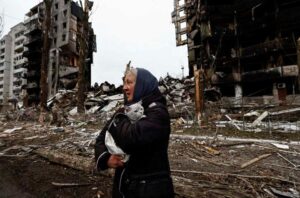


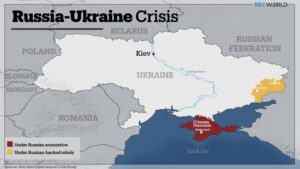
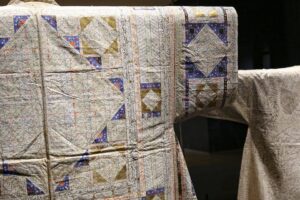


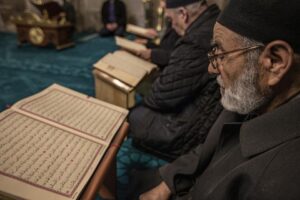

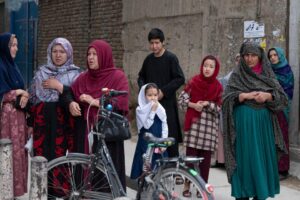
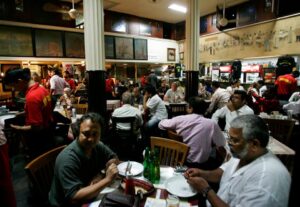
Be First to Comment